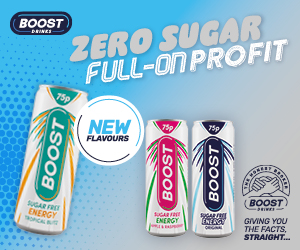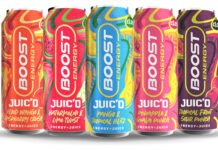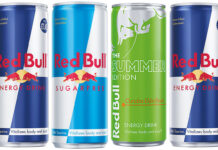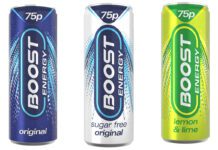Firms reckon PMPs can push impulse
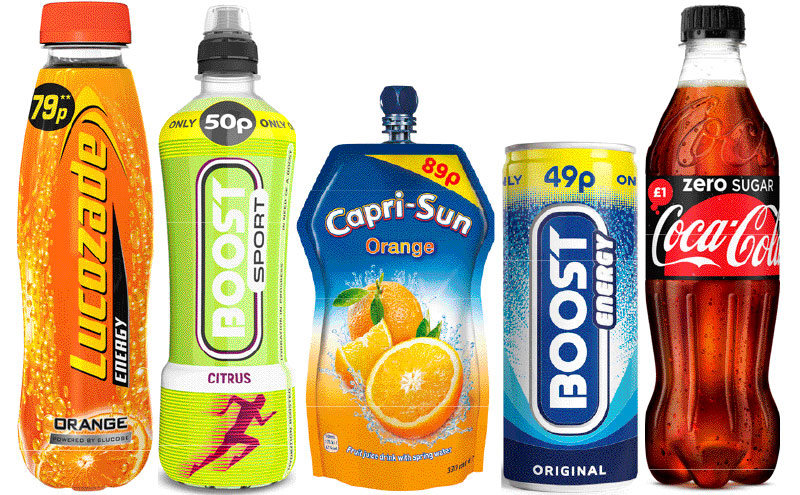
THE top-up shop trend has been good for convenience retailers, and long may it continue, but where solid merchandising and stand-out packaging really shine is in generating impulse sales.
For the soft drinks category, PMPs can be instrumental in giving customers that extra push towards a purchase according to producers, who have offered their insights into just how vital these packs are to the category.
Mark Sterratt of Lucozade Ribena Suntory reckons PMPs are crucial to demonstrating value to energy drink shoppers, particularly in convenience.
“The soft drink market in symbols and independents is worth £1.6bn with over half (57%) being driven by price-marked packs. Therefore, it’s essential that retailers stock up on price-marked formats,” he said.
“We also know that price-marked soft drinks have a faster rate of sale than their non-PMP equivalents and this rate of sale is increasing, up 5.5% in the past year.”
It’s not only soft drinks that benefits from PMPs in the chiller, with Sterratt suggesting a price-marked energy drink can boost basket spend across the store.
“Stocking up on PMPs could be beneficial for sales elsewhere in store too.
“We know that 76% of convenience shoppers think that PMPs improve a store’s overall price image, showing them clearly that they’re getting the best value around.
“Providing a visibly low price on products across various categories will certainly encourage shoppers to spend more in store, and increase their loyalty,” he said.
[box style=”2″]
[half]
22%
of convenience shoppers buy PMPs ‘every’ or ‘most times’ they visit a store.
– RedBull
[/half]
[half_last]
57%
of soft drinks sold in symbols and independents are price-marked-packs
– Lucozade Ribena Suntory
[/half_last]
[/box]
One energy drink brand pushing PMPs with real force is Boost, and a spokesman for the firm said the reason for this is that it’s a proven means of generating growth.
“Price-marked packs make absolute sense for independent retailers, in particular, as long as the retail price point is competitive and the retailer margin is maintained.
“Research has shown price-marked packs are preferred by the consumer and can enable independents to compete effectively by offering a price point in line with retail multiples, while demonstrating value for money,” he said.
The importance of PMPs to the soft and energy drinks category was also highlighted by Rich Fisher of RedBull, who reckons retailers could be turning customers away if they don’t stock such packs.
“21% of shoppers said they wouldn’t buy a soft drink from a convenience store if it wasn’t a PMP and 22% of convenience store shoppers buy PMPs ‘every’ or ‘most times’ they visit a store.
“Price-marked packs continue to play a strong role in convenience outlets by delivering a greater perception of value to consumers, with 76% of shoppers saying PMPs help a convenience store price image and 38% of shoppers agreeing that PMPs reassure them that they are not being overcharged in a convenience store,” he said.
Customer perception can make all the difference, particularly when it comes to impulse, where shoppers are known to love an offer.
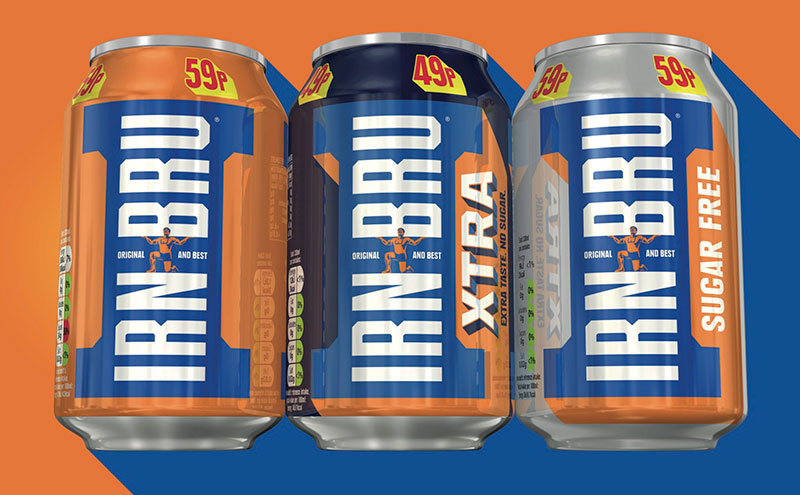
Amy Burgess of Coca-Cola European Partners reckons PMPs are an ideal way of presenting value to customers, encouraging them to pick up a product they had no intention of purchasing when first walking into the shop.
Burgess added that since PMPs are such a strong weapon in a retailer’s impulse arsenal, it may be worth considering siting price-marked soft drinks in multiple spots.
“Considering second sightings of PMP offers, for instance, close to the entrance or by the check-out, can help retailers increase their sales.”
While PMPs offer value to customers, there’s no doubt some retailers can be wary of the margins on offer. Ed Jones of Vimto soft drinks acknowledged this concern, but suggested the increase in volume sales more than makes up for a tighter GP.
“Whilst retailers need to keep an eye on their profit margins, the allure of a PMP will help to increase impulse purchases, encourage repeat custom and ultimately drive stock through more quickly,” he said.
Adrian Troy of AG Barr agreed that PMPs can push soft drink volume sales skywards, and he encouraged retailers to take up stock where they can.
“Our message to retailers and wholesalers is simple – stock up on price-marked packs of bestselling brands and watch your soft drinks sales soar,” he said.




